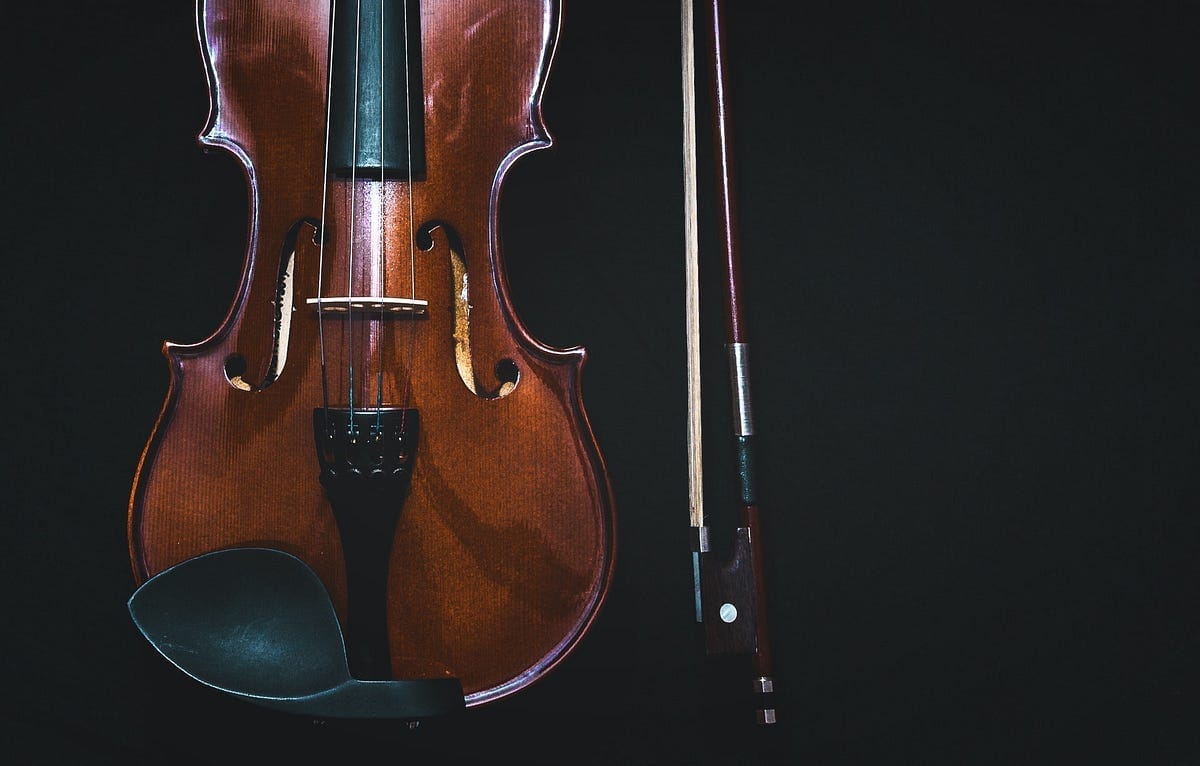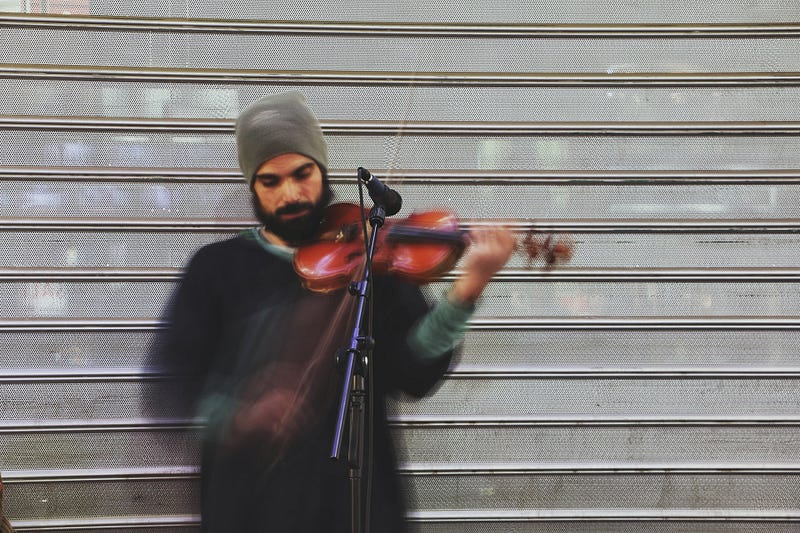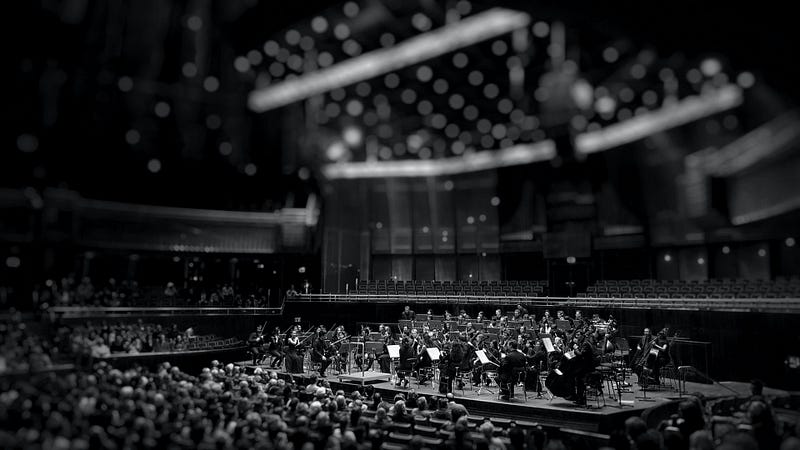To Make Millions Online, You Must Get This Right
The story of a 3.5-million-dollar violin that you’ll never forget
“A 3.5 million-dollar violin?” Mario exclaimed, intrigued by the news.
“What? Did you say 3.5 million?” Luigi reacted.
Mario continued reading the article. As he read a little further, he started laughing. Then he paused. “No way!” he shouted in disbelief.
“Ohh my goodness, Luigi, you won’t believe this!”
“Tell me, what are you reading?”
“Come here, take a seat,” Mario said, pulling a chair and holding the magazine in his hands.
“This is the story of a 290-year-old handcrafted Stradivarius violin that sold recently for $3.5 million. This violin was made by Antonio Stradivari of Cremona back in 1731.”
Mario paused, turned the page, and pointed to the picture, “Look, here it is. That violin is considered to be a masterpiece!”
“But, what makes it so special?” Luigi asked.
“Each violin is unique; this one, in particular, is considered one of the best in the world, and it’s full of secrets.”
“It must be special,” Luigi said, “Why would anyone pay 3.5 million dollars for a 300-year-old violin?”

“This violin is so sought after that it has been stolen twice in the past 100 years!”
“What? Now you've got me intrigued,” Luigi said, pulling up his chair a little further.
“The first time this violin got stolen was in 1919, taken from a hotel room in Vienna. Luckily it was recovered by the police three days later. The second time happened in New York City’s Carnegie Hall, back in 1936.”
“And did they caught the thief?” Luigi asked.
“Nope,” Mario continued, “The owner never saw the violin again. Almost 50 years later, a man on his deathbed confessed to his wife that he had ‘purchased’ the violin for $100.”
“Nah, I don’t believe that. Sounds like that man was the thief,” Luigi said.
“Yes, many people actually think that he was the thief, but after he passed away in 1988, his wife turned the Stradivarius violin over to the British insurance company that responded to the theft 50-years earlier. She was rewarded with a $263,000 finder’s fee. The insurance company sold the violin for $1.2 million a few years later.”
“Wow, that violin does have its history. I wonder why people would steal or pay that amount of money for it.”
“It’s quite difficult to comprehend that this very same instrument has been cherished for centuries by people all over the world. A few years ago, world-renowned violinist Joshua Bell purchased the violin for 3.5 million dollars. It is considered to be one of the best violins in the world.”
Luigi started laughing, “I feel like if I listened to this violin, I would most likely hear ordinary violin notes.”
“There’s a big lesson in that statement, Luigi!”
“What? What did I just say?” Luigi asked, intrigued.
“While we can hear only hear regular violin notes, real violin connoisseurs hear much more than that.”
“Ha! True, I’m pretty sure I would listen to both, this multimillion-dollar violin and a $3,500 one, and won't be able to notice much difference between both of them.”
Mario opened the magazine and said, “The answer to this phenomenon is found in the experiment that The Washington Post arranged a few years ago. They called it the ‘Stop and Hear the Music’ metro experiment.”
“What was the experiment all about?”
“They wanted to answer, what if Joshua Bell, one of the greatest violinists in the world, played his multimillion-dollar Stradivarius violin outside a Metro station in D.C., would anyone notice?”
“Ohh, wow, what a fascinating experiment! Tell me, what happened?”

“A total of 1,097 people walked past by Joshua while he performed with his multimillion-dollar violin. Out of these 1,097 individuals, only seven stopped to listen!”
“Only seven out of eleven hundred people?”
“Yep, one of them was a little boy who tried to stop, but his mother wouldn’t let him, so the child continued to walk while he turned his head trying to catch the melody.”
“Ohh no,” Luigi exclaimed, “Then what happened?”
“Bell played for about 45 minutes. Right at the end, a woman recognized him. She stopped and watched the last two minutes of his performance and approached Joshua to say hello. But when the music stopped, silence took over the station, no one applauded his impeccable performance.”
“Unbelievable how distracted we are!” Luigi asserted.
“Can you imagine? That day at the Metro station, only seven people paid attention to Joshua’s performance.
Three days earlier, he played to a sold-out audience at the Boston Symphony Hall, generating millions at the box office!”

“Unbelievable!” Luigi expressed with his eyes wide open.
“This is a true story — that morning at the station, Joshua collected only $32.17!”
“What a wonderful experiment!” Luigi said.
“Yes, in fact, The Washington Post won a Pulitzer Prize after this study,” Mario reaffirmed.
“So, what’s the lesson, Mario?”
“You mentioned you were struggling with your sales, correct?”
“Yes,” Luigi answered, “We haven’t been able to make a profit yet.”
“What’s your biggest problem?”
“We know we have a superb product, but still, it won't sell, so we’ve been making continuous revisions to the product.”
“Stop changing the product!” Mario interrupted.
Luigi paused.
“Don’t you get it? Your problem is NOT the product; it’s your marketing strategy!” Mario said.
“You’re like Joshua playing the Stradivarius violin to the wrong audience!”
“What do you mean?” Luigi asked.
“That morning at the station, less than 1% paid attention to Joshua’s melodies. Why? Because most only listen to the ‘noise’ of a violin. Only seven were interested in his music!”
“So, what’s do you suggest?” Luigi asked.
“You’re spending thousands to attract traffic to your website, but very few of them care enough for your ‘music.’ Who do you serve, Luigi?”
“But Mario, you don’t understand, we use targeted ads,” Luigi debated.
“To increase your conversions, you must further narrow down your current target audience. Think about Joshua’s music; it’s only appreciated by a very particular audience. Joshua doesn’t need or wants to please every ‘music lover’ out there to be successful, he just needs to focus on those who truly appreciate his music.”
Mario stood up, presented the magazine to Luigi, and said, “By the way, Joshua Bell returned to perform 7 years later at Union Station.”
“I bet it was packed,” Luigi jumped in.
“Yes! Over one thousand people showed up that day. Here, read the whole story and further reflect on the importance of knowing exactly who you serve.”
If Your ‘Melody’ is NOT for Me, I'll Only Hear Noise
How many times have you heard an entrepreneur say, “Everyone needs my product!” Next time, tell them about the 3.5-million-dollar violin and tell them:
“Everyone likes ‘music,’ but YOUR music is not for everyone!”
— Hector Quintanilla
I help committed entrepreneurs overcome the obstacles that keep holding them back from growing their businesses in today’s digital economy.
Discover the three (non-negotiable) pillars every business needs to succeed.
Originally Published in Medium
#BeBusinessSmart

